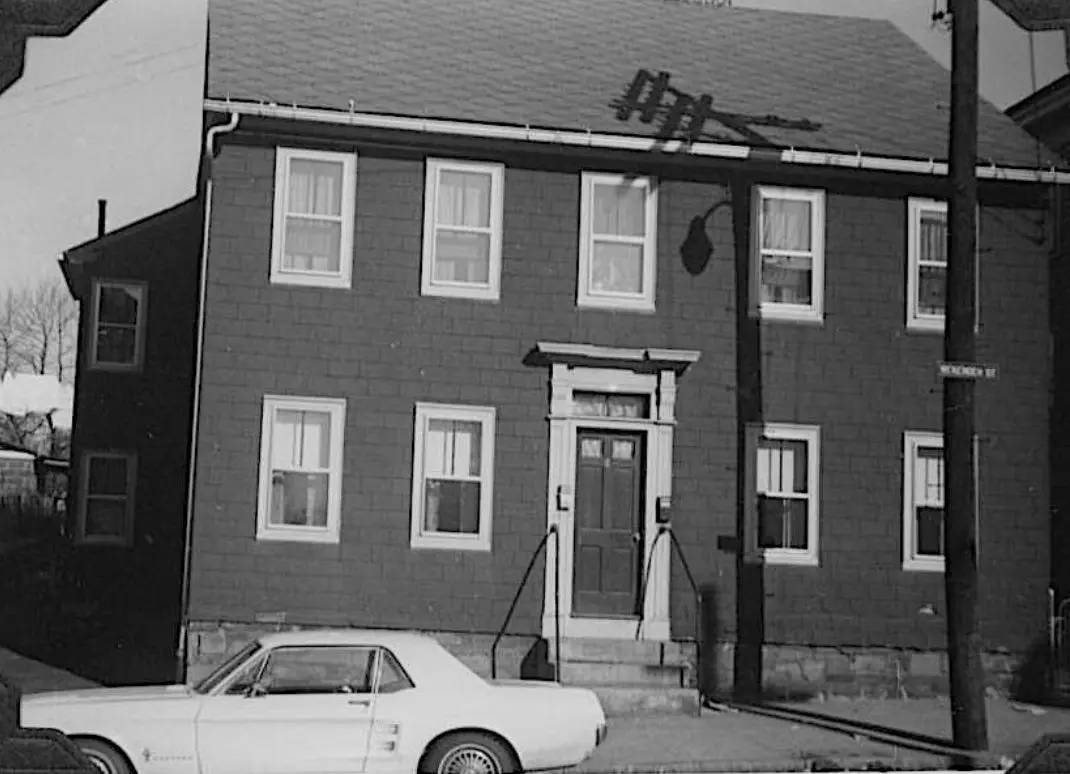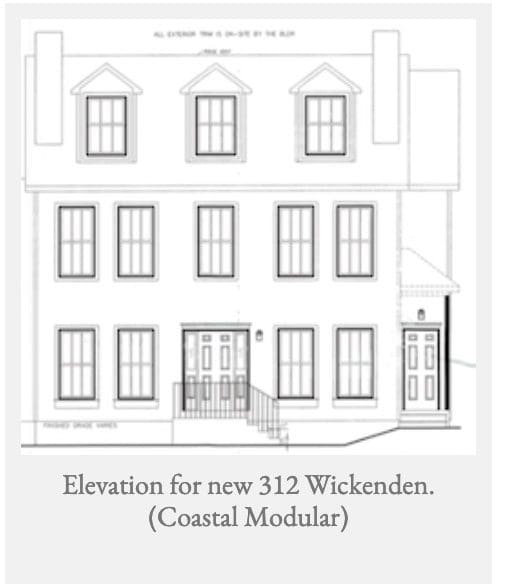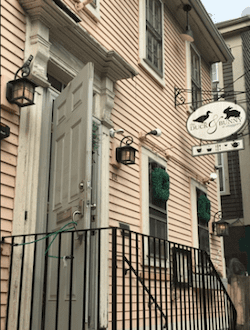Search Posts
Recent Posts
- It’s Sour Grapes time! – Tim Jones April 17, 2024
- It is what it is – Jen Brien April 17, 2024
- National unionization of pharmacy professionals reaches 2 Rhode Island CVS stores April 17, 2024
- Rhode Island Weather for April 17, 2024 – John Donnelly April 17, 2024
- Former Cranston City Councilor Aniece Germain says let the “truth be told” on her resignation April 17, 2024
Categories
Subscribe!
Thanks for subscribing! Please check your email for further instructions.

A Duck & Bunny mystery – David Brussat
by David Brussat, Architecture Here and There, contributing writer
Photo: 312 Wickenden St., c. 1790. (Gowdey Database, PPS)
On Easter weekend a colonial-style building at 312 Wickenden St., in Providence, was razed by its new owners, who also owned the Duck & Bunny Snuggery, which was shut for the pandemic. I heard about this calamity on Sunday and instantly wrote an obituary for the lovely building, which was said to have been built in 1900, but might have been built as early as 1790.
After my post ran I was informed by email that reporter Lynzi DeLuccia of WJAR Channel 10 had done a story in which the new owners said that code issues and structural instability had forced their hand, but they hoped to rebuild 312 Wickenden and reopen the Duck & Bunny. Good news, if true!
But other emails came to me saying that there had been no code or structural issues arising at 312 Wickenden as of 2018, when the new owners bought the building for $405,000. I confirmed this with city planning officials.
And yet the new owners insist that those issues were there, and they are backed up by the Providence Preservation Society. There is direct contradiction here not just between the new and old owners, but between PPS and the city planning department. And the evidence has been demolished.
The local historic district’s boundary excludes Wickenden Street, so it was not protected by the city and the owners were able to demolish it “by right,” without any notification to abutters or the community, which they did not provide.
Now I have learned from the prior owner that 312 Wickenden might have been built in the 1790s, early in the Federal period. The city gave it a pro-forma date of 1900 because the actual date was unknown, even though it was thought to be “earlier than 1857.” Local preservationist Mack Woodward dated it to between 1810 and 1830. The previous owner cites 18-inch floorboards and other features that suggest the older reaches of its age. If the building, officially the Almira P. Allen House, really dates from the post-colonial era, then its loss is doubly tragic.

The new owners intend to rebuild 312 Wickenden as closely as they can manage to its old look, but they are using a quad construction system. It will be built in sections off-site and erected on-site. How well they can replicate the building using such a method seems unclear to me. For example, did they rescue the elegant front door surround? If not, can they reproduce it? Will the clapboards be as narrow as the original ones? They claim to have saved some of the beautiful interior features, but that will be of little account if the exterior looks as bad as 298 Wickenden, two doors downhill from 312. It was torn down a year or so ago and replaced with a clunky faux colonial. If anything like that happens at 312, the Duck & Bunny may end up in bad odor with the neighborhood, no longer so beloved. Naturally, I am rooting for a high-quality exterior restoration that the Duck & Bunny can occupy with their heads held high.
The city contends that the Duck & Bunny could have operated in 312 Wickenden for the foreseeable future. But it seems there may have been a fly in the ointment. According to one source, the owners’ purchase of the building involved a new insurer in its fate, which may have said it would not insure the building unless it was brought up to a higher level of fire and safety codes and ADA disabled access that would take effect because of the owners’ desire to renovate substantially.

Providence has 35 districts on the National Register of Historic Places. A listing is purely honorary. The city has only seven local historic districts with limited actual protection for historic properties. The local College Hill Historic District extends into Fox Point but only to within one block of Wickenden Street. If its merchants and residents fear for its historic character, they will need to petition to have the College Hill Historic District extended by at least one block. Eventually, the merchants who blocked the street’s inclusion in the local district decades ago will regret what is brought by the winds of change. Yet, by then it is likely that Providence as a whole will no longer boast the allure from which Wickenden Street borrows its charm.
_____

My freelance writing and editing on architecture and others addresses issues of design and culture locally and globally. I am a member of the board of the New England chapter of the Institute of Classical Architecture & Art, which bestowed an Arthur Ross Award on me in 2002. I work from Providence, R.I., where I live with my wife Victoria, my son Billy and our cat Gato. If you would like to employ my writing and editing to improve your work, please email me at my consultancy, [email protected], or call (401) 351-0457 https://architecturehereandthere.com/

At this point, the building is sadly gone. Putting a faux replacement is a joke. At this point, they may as well put up a new building that reads as new. What a loss! And the owners have lost one more once-impressed customer. Impressed that they were reusing an old house so effectively. I’m sure that doesn’t matter to them. So farewell to D&B and Oggies for me.
You are right, developers are changing the look in the Fox Point and other places in nearby East Providence. They are buying property and building buildings that are awful, and hurtful to at least my eyes. They are like a sneaky nasty virus that has slithered into the area, there are several of these awful buildings throughout Fox Point.